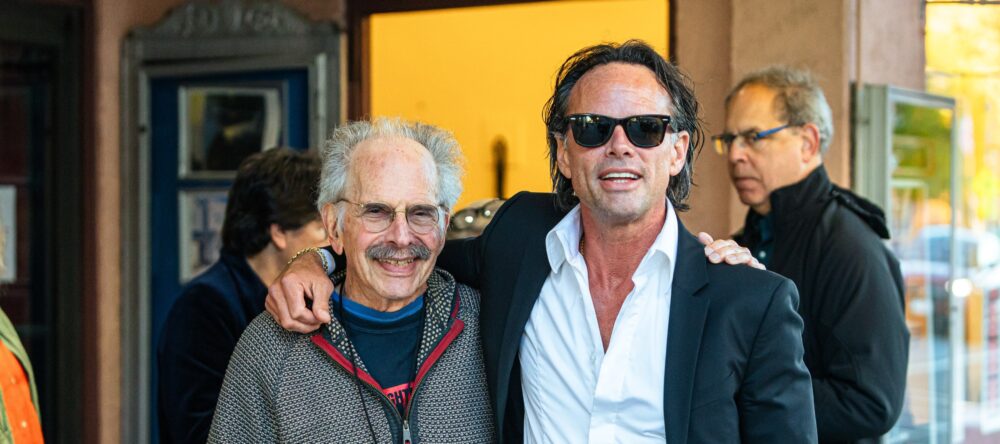by Peter Biskind
A behind-the-scenes look at what has made The Crandell’s FilmColumbia Festival, approaching its 25th anniversary this fall, the toast of the town.
Speaking for the Crandell board, I’m happy to assure Chatham’s movie lovers that the renovation slash restoration of the theater is proceeding on schedule, and will be finished in plenty of time for the theater’s 100th anniversary next year.
Running a single-screen theater at a time when even the multiplexes are struggling to stay alive is no small thing, but with the help of our loyal audience, we’ve managed to scrape by, furnishing Chathamites with a regular diet of studio and indie hits, despite the fact that the big studios often demand that we run their films for two or three weeks, which is fatal to our box office.
We’re particularly proud of our annual film festival, started in 2000 with a nudge from the Columbia Council on the Arts, which asked us to take over their struggling festival, largely because it was confined to films and filmmakers in the county. It was a challenge, but we thought it would raise the profile of the Crandell.
In those early days, we had to beg and grovel to get films from distributors who turned a jaundiced eye on a small, single-screen theater in a tiny town they’d never heard of. From their point of view, there were no good reasons to give us their films, and plenty of reasons not to give us films: the Crandell had too many seats, too few seats, poor projection, muddy sound, no obvious audience, etc., etc. We never would have made it without the help of James Schamus, who then headed up Focus Features, and gave us his choice films, like Crouching Tiger, Hidden Dragon and Brokeback Mountain that served as magnets, attracting like titles from other distributors. Movies like these made it evident that limiting the selections to regional filmmakers made no sense. If we were offered pictures like Brokeback Mountain, why turn them down because they weren’t local? We decided to go after the best films we could get no matter their country of origin, which turned out to be a recipe for success.
For its first twenty-odd years, we had to program the festival without having seen any of the films we selected because the distributors refused to send us preview prints. Sounds insane, but it turned out to be doable. We just noted which titles had won awards at Cannes, Berlin, Sundance, Telluride, et al., and went after them. Although it’s possible to program this way, it’s not desirable, and all that changed when Larry Kardish, former film curator at MOMA, joined the board and dove into the festival. Larry actually attends Cannes, Berlin, Sundance, and so on. His educated opinions and vast network of contacts have enabled us to take much of the guesswork out of the selection process. And throughout, from the early days to the present, Calliope Nicholas has faultlessly managed the nuts and bolts—juggling distributors, ticket sales, volunteers, publicity, scheduling, and much more—so that each festival functions like clockwork. And again, let us not forget our loyal audience who flock to the festival year after year to applaud films they would never see elsewhere—and before they open. Many don’t even live in Chatham, but come from as far away as Los Angeles, and even sit in the same seats every year! The proverbial phrase “it takes a village” has never been more apt than when applied to FilmColumbia.
Eventually, the festival not only succeeded in raising the profile of the Crandell as we had wished, but it became so successful that the revenue it generates enables us to overcome our operating losses. As for the future, with new, state-of-the-art projection equipment, sound, and yes, spiffy bathrooms that don’t look like they came from Rikers, and yes again, fine wine in the enlarged lobby, the Crandell experience will be better than ever. Its founder, Walter S. Crandell, will finally be able to sleep in peace.
Crandell Board member Peter Biskind, author most recently of Pandora’s Box: How Guts, Greed, and Lust Upended TV, is FilmColumbia’s Co-Executive and Co-Artistic Director.


